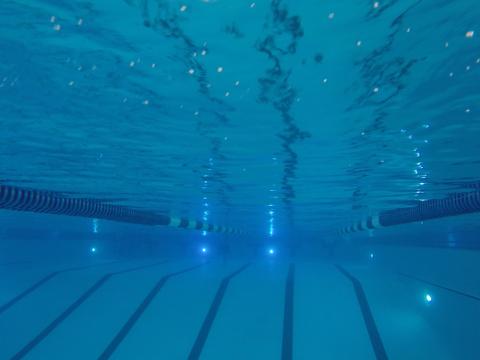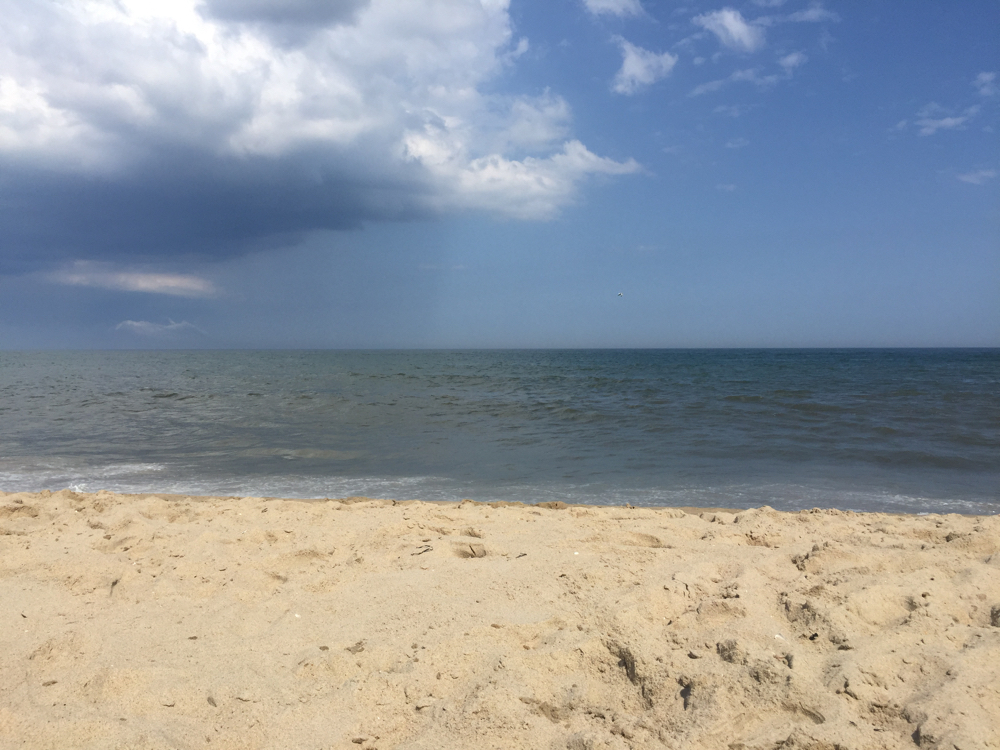prints, drawings, paintings, web development, blog posts, link to etsy shop
The Quiet

 Swimming is the most "mental" sport I know. Distance swimming even more so. And I've been struggling to wrap my mind around the really long training sessions I've planned in the next few months (not to mention the swim events). After reading a little article on SwimSwam about the lessons we learn from our swim coaches, I began thinking about all the things I've learned, not only from my swim coach, but from swimming itself.
Swimming is the most "mental" sport I know. Distance swimming even more so. And I've been struggling to wrap my mind around the really long training sessions I've planned in the next few months (not to mention the swim events). After reading a little article on SwimSwam about the lessons we learn from our swim coaches, I began thinking about all the things I've learned, not only from my swim coach, but from swimming itself.
Swimming is the great teacher. In the pool. With teammates. And especially in open water - where we are always only one breath away from drowning.
I now believe most of my mental control in long distance events like marathons and Ironman races can be traced back to my swimming roots. And having been a competitive swimmer before anything else is likely what influenced me to (prefer to) do most of my long training sessions alone. For many, many years, people have asked me how and why I do it alone: "How do you handle 6-7 hours on the bike all by yourself every weekend?" I have no idea. I set my mind to it, and do it. After all, running alone had always been therapy. It cleared my mind. It made me less anxious. When I started doing longer triathlons, it never occurred to me to subject people I knew to MY long rides (even people who DO long rides). OK, so I'm an introvert. But don't get me wrong. I've truly enjoyed running and riding with others. It's just that I never actively seek out company. And it never bothered me to be alone hammering away for all that time.
How did I get this way?
Swimming. Every day. Swimming twice a day three times a week. At times, swimming more than ten-thousand yards a day. Swimmers remain swimmers because they don't flinch when the coach says we're doing 10x1000s for a single workout. Surviving those workouts in college made me mentally tougher than that week I had four final exams in two days.
From the moment I walked onto the swim team at 14 years old in high school, never having been coached, never having experienced a single swim workout in my life, everything in the pool was a progressively harder thing to do. After every workout of my freshman year I vowed I would quit. But I didn't. And by sophomore year, I was swimming in Lane 1. With the fast kids. And I had great friends in my teammates. But, unless you're at a swim meet, swimming is not a social sport. You get a few moments to commune (or commiserate) with your lane-mates before the next interval. There's no time to talk, or laugh, or enjoy the scenery (what little of it there is on a pool deck).
It's all mental. Some people compare its boredom to treadmill running.
I remember my first 1650. In practice. I was terrified. I didn't think I could swim that long without stopping. One of the swimmers on the boys team told me something I would never forget. He told me to detach my brain from my body. To imagine I was a machine. And that's what I did. And, whoa! It worked. No pain. Three years later, I would be swimming the 1650 in competition. And loving it. It WAS all mental.
But swimming long distances is also a very, very lonely thing. It's quiet. Like I said earlier, you can't have conversations. You can't even smile if you're enjoying yourself. (To be fair, I HAVE smiled "inside.") Losing focus for a second means you'll suck down water, ram into the wall, or, if you're like me in open water, swim in circles. That's another reason swimming is a mental sport. It's not natural. We were born walkers. Runners. Bikers. Air-breathers. Surrounded by air, not needing to "think" when we breathe. When we're swimming, we're surrounded by water and have to consciously take a breath. We battle an element we're not built to thrive in. Yeah, our bodies may be 90% water, but we don't have fins and/or gills. There's a reason more people have climbed Mount Everest than swum the English Channel. Humans are not made to be swimmers.
 But some of us are drawn to water. And that's where I find myself now. Trying to conquer the water again. Trying to rekindle the mind-control I once had. Once again, I'm learning to appreciate the quiet. To nurture the solitude of longer and longer sessions in the water. I'm learning to rein in my enthusiasm at the start and prepare myself mentally for spending more than three hours in the water. I KNOW I can do it. And most of the time I really enjoy it. But, like my younger days, my mind gets in the way when I think too much about it.
But some of us are drawn to water. And that's where I find myself now. Trying to conquer the water again. Trying to rekindle the mind-control I once had. Once again, I'm learning to appreciate the quiet. To nurture the solitude of longer and longer sessions in the water. I'm learning to rein in my enthusiasm at the start and prepare myself mentally for spending more than three hours in the water. I KNOW I can do it. And most of the time I really enjoy it. But, like my younger days, my mind gets in the way when I think too much about it.
And the quiet in a pool is one thing. The quiet in open water... well, that's something entirely different. It can be deafening if the fear seeps in. Fear of currents. Fear of the cold. Fear of weather changes. When I go back to the lake in the next month or so, I'll face a whole new set of conditions under which to practice mind-control. And I will need to learn to be comfortable being uncomfortable. It's all mental.
I find that the best way is the old way. Each time I conquer a goal, it's one more thing to convince my mind of the next time. Just don't give up, and eventually, all the mental obstacles will give way to knowledge - knowledge that anything is possible. You just have to train for it.
Swimming is the most "mental" sport I know. Distance swimming even more so. And I've been struggling to wrap my mind around the really long training sessions I've planned in the next few months (not to mention the swim events).
tags
archive
- May 2021 (1)
- December 2020 (1)
- September 2018 (1)
- September 2017 (2)
- July 2017 (1)
- June 2017 (3)
- May 2017 (1)
- April 2017 (3)
- January 2017 (2)
- November 2016 (1)
- October 2016 (1)
- August 2016 (2)
- July 2016 (5)
- June 2016 (10)
- April 2016 (1)
- March 2016 (1)
- February 2016 (1)
- January 2016 (2)
- December 2015 (1)
- November 2015 (1)
- September 2015 (2)
- June 2015 (1)
- May 2015 (1)
- April 2015 (1)
- March 2015 (2)
- February 2015 (1)
- January 2015 (1)
- December 2014 (1)
- November 2014 (1)
- October 2014 (2)
- September 2014 (2)
- August 2014 (2)
- July 2014 (2)
- June 2014 (1)
- May 2014 (3)
- April 2014 (1)
- March 2014 (1)
- February 2014 (1)
- January 2014 (2)
- November 2013 (3)
- October 2013 (3)
- September 2013 (2)
- August 2013 (2)
- July 2013 (2)
- May 2013 (2)
- March 2013 (2)
- January 2013 (20)
- December 2012 (18)
- November 2012 (28)
- October 2012 (14)
- September 2012 (1)
- August 2012 (2)
- July 2012 (1)
- June 2012 (3)
- May 2012 (2)
- April 2012 (2)
- March 2012 (4)
- February 2012 (2)
- January 2012 (1)
- December 2011 (3)
- November 2011 (3)
- October 2011 (5)
- September 2011 (2)
- August 2011 (3)
- July 2011 (4)
- June 2011 (6)
- May 2011 (5)
- April 2011 (7)
- March 2011 (6)
- February 2011 (5)
- January 2011 (6)
- December 2010 (3)
- November 2010 (4)
- October 2010 (5)
- September 2010 (9)
- August 2010 (5)
- July 2010 (9)
- June 2010 (4)
- May 2010 (4)
- April 2010 (3)
- March 2010 (2)
- February 2010 (4)
- January 2010 (7)
- December 2009 (3)
- November 2009 (1)
- October 2009 (6)
- September 2009 (4)
- August 2009 (6)
- July 2009 (4)
- June 2009 (13)
- May 2009 (7)
- April 2009 (7)
- March 2009 (10)




Comments
To paraphrase Yogi Berra,
To paraphrase Yogi Berra, swimming is 50% physical the other 90% is mental.
Add new comment